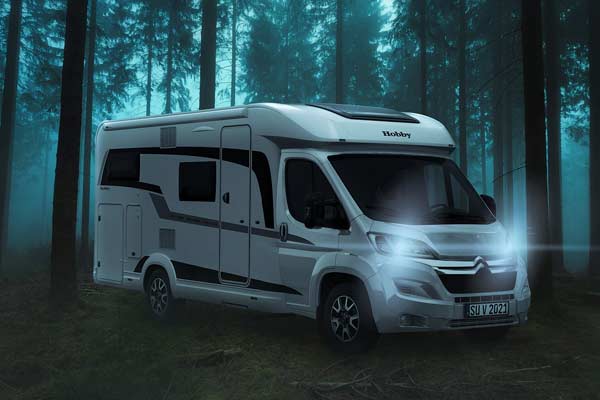Is It Legal to Live in An RV In Canada?
There is no one-size-fits-all answer to this question because the legality of living in an RV in Canada varies by province or territory. Living in an RV can be a great way to travel the country while saving money on lodging.
If you plan to live in an RV in Canada, check with your local government to learn about the specific rules and regulations that apply to you.
Always obey all traffic laws and parking restrictions, as violating them may result in fines or even eviction from your RV park or campsite.
Can You Live Permanently in an RV?
As previously stated, the legality of living in an RV varies depending on where you want to pitch camp. However, living in an RV on a temporary or permanent basis is legal in most cases.
If you intend to live in an RV full-time, check with your local government to learn about the specific rules and regulations that apply to you.
Always obey all traffic laws and parking restrictions, as violating them may result in fines or even eviction from your RV park or campsite.
Living in an RV can be a great way to travel the country and live a nomadic lifestyle. Research camp to ensure you’re not breaking the law.
Some provinces do not allow people to live in RVs full-time. Ontario, for example, does not permit it. However, some regions allow it, such as Alberta and British Columbia.
What Are the Legal Requirements for Living in An RV In Canada?
A few legal requirements must be met to live in an RV in Canada. You must have a valid driver’s license and RV registration and follow all local camping regulations. Some provinces also require you to have RV insurance.
However, some requirements apply to all provinces, and they are as follows:
- The RV must be self-contained, with its toilet, sleeping area, and kitchen. Furthermore, you can only stay in one place for a maximum of three months before having to relocate.
- RVs must not cause a public nuisance, such as blocking traffic or causing a noise disturbance.
- The RV must be in good working order and not pose a safety hazard.
- The RV driver must be at least 16 years old.
The Distinctions Between Regular Vehicles and Recreational Vehicles
RVs are motor vehicles designed to be used as temporary residences and come in various shapes and sizes. Some RVs resemble buses, while others are trailers towed behind a vehicle.
There are some general rules that you must follow regardless of the type of RV you have if you want to live in it permanently in Canada.
First, ensure that your RV is properly registered and licensed in the province or territory where you intend to live. You’ll also need to get insurance for your RV, just like you would for a car.
In some provinces, such as British Columbia, you may also need to have your RV inspected before registering it.
After registering your RV, you’ll need to find a parking place. This is usually accomplished by locating a campground or RV park that allows long-term stays.
You should, however, check with your municipality to see if there are any restrictions on where you can park your RV.
Some cities, for example, only permit RVs parked on private property with the owner’s permission.
If you intend to live in your RV full-time, you must ensure that it has the necessities, such as a kitchen, bathroom, and sleeping area.
You must also ensure that your RV has adequate storage space for all your belongings. You must also ensure that your RV is well-insulated to protect you from the cold weather in Canada.
Essential RV Requirements If You Live or Travel in Canada
Licensing
The good news is that most RVs in Canada can be driven with a regular driver’s license. Specific license regulations vary slightly across provinces, but you are not required to meet requirements in each region you travel. Because of a convenient agreement, you are only held to the standards of your home province.
Seatbelts
Seatbelts are required for all passengers in all RVs in Canada, regardless of age.
Registration
To register your RV in Canada, you must provide your name, address, and the make, model, and year of your RV. You may also be required to provide proof of insurance.
Safety Regulations
To be registered in Canada, RVs must meet specific safety standards. These requirements vary depending on the type of RV, but they usually include items like brake lights, turn signals, and a fire extinguisher.
Insurance
In most provinces, liability insurance is required for RVs. This type of insurance covers any damages caused by your RV in the event of an accident. Some regions also need collision and comprehensive insurance, which protects your RV regardless of who is at fault.
Areas You Are Not Permitted to Reside All Year Long With
Yes, there are specific regions you can’t park at any time for one reason or another. They include:
National Parks
You can stay in national parks for a maximum of 6-8 weeks per calendar year and must purchase a camping permit. www.pc.gc.ca/eng/pn-np/about-info/visit-visitez/permits-permis.aspx to learn more about national park permits.
Provincial Parks
Each province has different rules about how long you can stay in their parks, but the average stay is 21 days. Contact your provincial government office or visit http://www.discovercamping.ca/ for more regional park camping rules.
In most urban areas, there are no laws prohibiting overnight RV camping, but it is always a good idea to check with the local city or town office to see if there are any restrictions in place.
Furthermore, some cities have bylaws prohibiting camping on city streets, so check for signs before setting up camp.
Private Property
You cannot camp on personal property without the owner’s permission. If caught camping on private property without permission, you may face trespassing charges.
Rest Stops
While overnight camping is typically not permitted at rest stops, you may be able to find some that allow RV overnight parking. Before you set up camp, make sure to check the signs.
Living in an RV allows you to enjoy Canada’s beautiful scenery while still having all of the comforts of home. You can confidently abide by the law if you follow these simple legal requirements.







